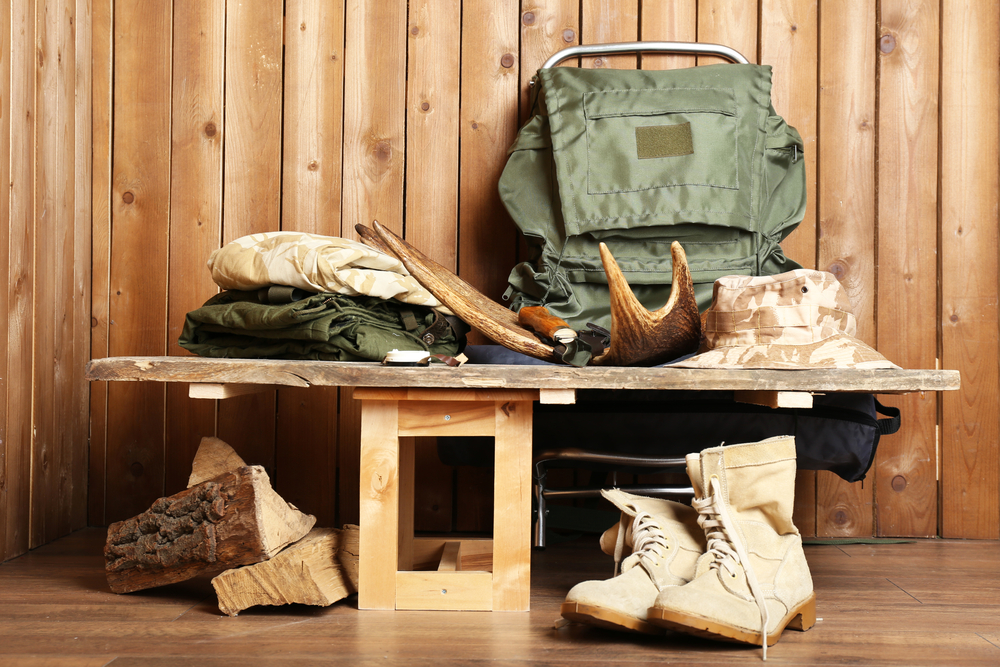A hunting trip usually starts early in the morning and lasts until late in the evening, but most day trips end with you back in the comfort of your bed. These plans can be effective, but if you live far from your hunting grounds, that might mean a very early start to reach your destination before the sun rises or your quarry eludes you.
Planning your first overnight hunting trip might seem intimidating, but it can also be incredibly rewarding. Here are some tips to help make your first one a success.
1. Watch the Weather
Mother Nature doesn’t always cooperate, especially when we’re trying to spend some time in the wilderness. If you’re heading out overnight, the last thing you want is to get stranded in a blizzard or washed away by a torrential thunderstorm.
Check the weather before you plan your trip. Meteorology reports aren’t 100% accurate, but they can help you make an informed decision. Regardless of what the weather report says, make sure you’re prepared for anything.
2. Get Your Licenses Together
No matter what you’re hunting, it would help if you had all your ducks in a row — and by ducks, we mean hunting licenses. Ensure you have all the necessary permits for the animals you’re hunting, as your state requires. Make sure you’re aware of any bag limits that might restrict the number of animals you’re allowed to take.
3. Practice Your Skills
You could stay out in the field for an afternoon, a weekend or an entire month, but no amount of time hunting will help if you don’t know how to aim your weapon. Make sure you practice your shooting skills before planning a hunting trip. Take the time to understand how your gun works and how to fix common problems while you’re out in the woods. Hitting what you’re aiming at could mean the difference between a successful hunt and coming back home empty-handed.
4. Choose Your Supplies Carefully
In addition to any guns and ammo you’ll need for your hunt, you’ll have to carry everything. This includes a tent and sleeping bag, supplies you’ll need to cook or keep yourself fed, and anything else you might need while in the field.
Choose your supplies carefully. Opt for lightweight choices that don’t compromise functionality. A light tent should still protect you from the elements. You don’t want to choose a cheap option only to find out it will leak during the first rainstorm you encounter.
5. Let Someone Know Where You’ll Be
Solo hunting trips can be relaxing, but if you’re heading out in the woods by yourself, make sure someone knows where you’re going, where you’re going to be and when you expect to return. This tip is essential if you’re heading into an area with no cell signal. Your emergency contact can send help if you don’t check in on time, which could save your life if you end up lost or hurt while you’re hunting.
6. Have a Plan for Your Prey
Overnight hunting trips are great, but what are you planning to do with your quarry if you bring it down? If you’re by yourself and manage a large kill, such as a deer, are you prepared to field-dress the creature and carry it back to your car? Game bags can prevent you from throwing something over your shoulder and soaking through your clothes or supplies with animal blood.
7. Don’t Overpack
You’ll have to carry everything you need from your car to your hunting spot and then back again at the end of the trip. Resist the temptation to overpack, especially if you’re hunting by yourself. Overloading yourself might seem OK on the way out, but if you’re exhausted once the trip ends, you might find it hard to make it back to civilization.
8. Get Some Rest
Being out in the wilderness isn’t an excuse to stay up all night. Make sure you’re getting plenty of good sleep. The longer you stay awake, the more sluggish your reaction times become. The CDC compares staying awake for 24 hours to operating with a blood alcohol content of 0.10%. If you were drinking, you’d be above the legal limit.
You’re not going to be able to hit the broad side of a barn if you don’t get some sleep. You’re bringing a tent and a sleeping bag — make sure you use them.
Stay Safe Out There
Overnight hunting trips can be a fun experience if you’re prepared. Make sure you’re getting plenty of rest, choose your supplies carefully, and check in with your emergency contact when you arrive and leave your hunting grounds. Above all, stay safe.
